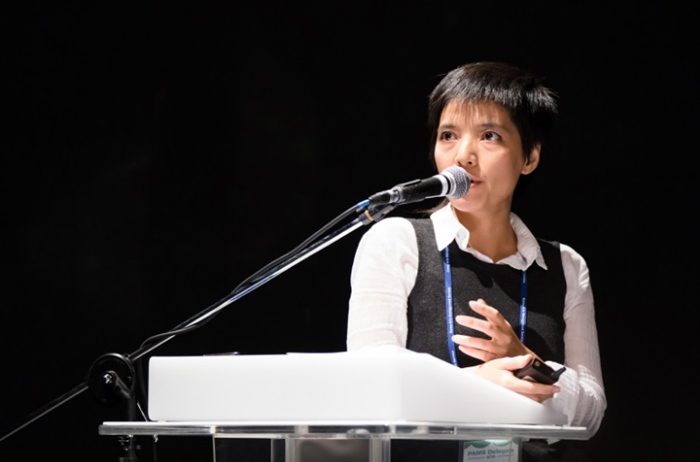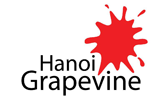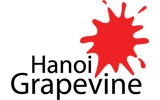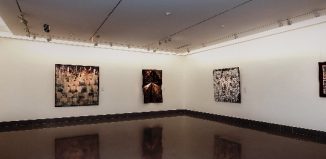In Conversation with Kim Ngoc: About Hanoi New Music Festival’s Spirit and Its Diversity

Interviewed and translated by Van Do, edited by Thanh Chu
Hanoi New Music Festival has become an indispensable part of the contemporary and experimental music and art scene in Vietnam since its first season in 2009. The festival features sonic and musical works of artists and musicians from Vietnam and other parts of the world. This year marks the third season of the festival with the theme “Make A Silence” and focuses on spotlighting the contemporary experimental music scene across Southeast Asia.
This year’s festival will welcome the participation of more than 30 artists, musicians, researchers and curators coming from 9 out of 11 Southeast Asian countries. Before the launch of the festival (which will take place from Dec 16-21), we sat down with Kim Ngoc Tran, Festival Director, to converse with her about the inspirations leading her to this initiative and the special features of the festival.
I have read your interview with Ms Zoe Butt, in which there was a question regarding the name of the festival, “New Music”. Still, I am curious if you are using the same terminology used to refer to a past musical period in German and European music. Maybe an influence from the time you spent abroad in Germany?
Oh not really so! Actually when I was studying in Germany, there was a term “neue musik”, (new music) and they used that word to refer to contemporary music. When I came back to Vietnam and decided to organize a festival for contemporary and experimental music in 2009, I spent a year discussing and thinking about the name for the festival. At that time, when I just got back to Vietnam, there were controversies, some very intense ones, about what contemporary music meant. My friend said that someone mentioned my name in such discussions, telling me to say something, to voice out my opinions. But honestly I didn’t want to say anything. Because I really didn’t want to express opinions about something I didn’t really know, something I was still searching for. I needed to answer my own questions before answering anyone else’s!
That’s why I found those discussions meaningless: you are not contemporary music, I am contemporary music… At the same time, if we still have to adhere to the definition of “contemporary music” already shaped by the West, how could the contemporary of Vietnam be defined? And why do we have to do that?
So what is the implication of “new music” here?
Partly for me to refrain from such discussions above! I don’t want to waste time arguing about what contemporary music is. New music here is still understood as contemporary music, of course. However, what I mean is the music that is new to the art and music scene here. Why should we spend our time learning and mimicking the contemporary from elsewhere instead of just creating something new from this geosphere, this biosphere? If we love what is here, we need to work with it and grow it until it becomes an ecosystem for our own contemporary music. I am not a formalist, thus by creating this festival, I want to nurture the contemporary that is born here.
For me, terminology is not very important right now. Just let the artists work, and leave the work of synthesis into terms for the researchers.
In this festival, we are going to see a lot of musicians and artists from very different, and even contrasting backgrounds, together on stage.
Exactly! That’s a theme in this festival I want to put an emphasis on. I have seen many communities in Southeast Asia and even in Vietnam that can never sit together. They always see themselves so different from one another. I have the tendency to see the good side rather than the bad side. That’s why here will be many musicians from very academic backgrounds and those from self-taught and non-academic backgrounds, local musicians and foreign artists… Perhaps I have acquired this approach since I studied improvisation. Improvisational music is like playing ping-pong. It has made me practice listening and responding without much preparation. I have to be very attentive to the other “talker”/”player”.
What is the difference between this year’s season to that of 2013? It seems like this season is more open to forms?
No, I think, compared to 2013, this year is not as diverse in terms of form. In 2013, we had film screenings and one installation. The most different thing that I have done this year, I might say, is my role as a curator. In 2013, due to the low budget, my approach was to pick and invite whoever was available; there was no concept behind the program and the festival. This year, in spite of the fact that the festival is still under a small budget, I started conceptualizing the festival very early with a 50-day field trip research across Southeast Asia. Based on this research, I have come up with the curatorial concept for the festival before getting my hands on inviting the artists in each country. Thus, I was able to make more deliberate selection. You can see later in the line-up that I have invited artists who are quite established and experienced in their own practices, so that they can not only perform their most distinguished works, but also present about their own practices in relation with the music scene in their country.
In this year’s season, I have selected the most notable trends of practices in the contemporary experimental music scene in Southeast Asia to present to the Hanoi audience: contemporary classical music, connecting heritage, electronic and transdisciplinary, music theatre and improvisation. Some of these programs will take place in the evening in the form of Concert and Performance, while others are more free and liberal in the format of performance, like Night Club Experimental. This format will happen later, from 10.30pm until midnight, and you just have to walk a few steps outside the main concert venue to experience a completely different spirit and space.
There is also the Symposium Program that is different from the program of 2013. Do you have the intention of getting more involved with discourse in the Southeast Asian region?
What I am doing is an initiative to build a scene for contemporary experimental music in Southeast Asia, which we haven’t had yet. Thus, I can’t just introduce new productions, but I also want to contribute to establishing an ecosystem, a network. Having a symposium program in the festival will hopefully make a more fruitful impact than just inviting artists overseas to perform. At the symposium, I imagine that everyone will sit down to talk, discuss, and try to understand one another on a deeper level. We will also welcome researchers and scholars of music to the symposium, that way, we are having both the practitioners and the researchers. The discussions will encourage different perspectives in order to imagine a more sustained future for the contemporary experimental music in Southeast Asia.
After the panel discussion of each day, we will have site-specific improvisational performances around the Vietnam Museum of Ethnology. The program is called “After 5”. Please stay tuned for our schedule,coming up soon on our Facebook page and website!
Thank you for this conversation.













